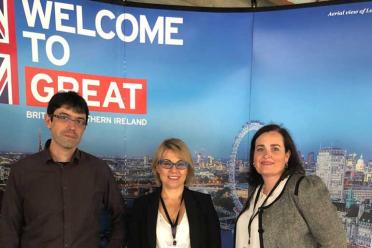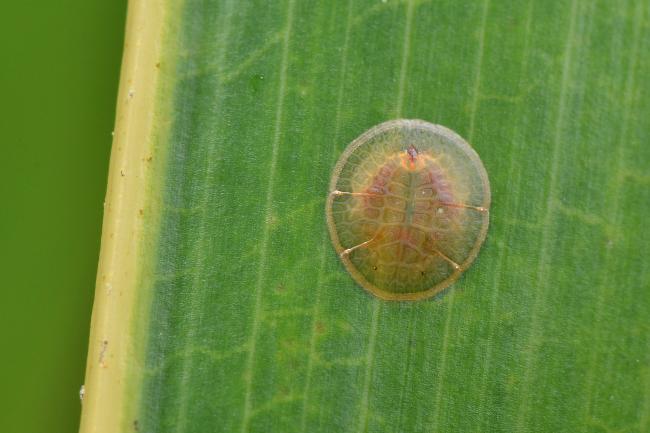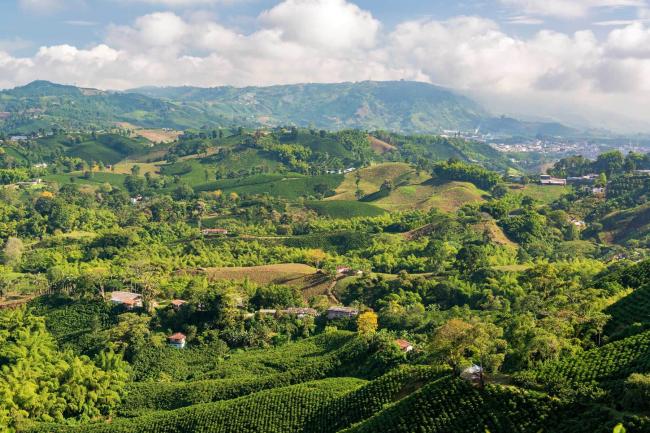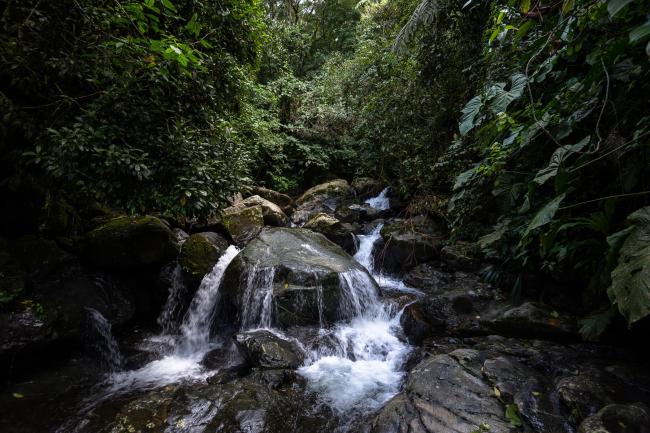
At the 2018 International Environment Fair (FIMA) in Bogota this week, the UK is credited as the official guest country, highlighting the UK’s investment in Colombia and how UK-based academics are helping to build capacity in Colombia for science research.
As part of panel interventions featuring many high profile names across government and academia, the Earlham Institute represented the UK and spoke of the importance of research for decision making and how she founded BRIDGE: a high impact, international, multidisciplinary network of academic and government research institutes as well as industry partners and NGOs. This important contribution to international science was highlighted in a speech by Colombia’s Minister of Environment Luis Gilberto Murillo Urrutia.
Born out of this groundbreaking collaboration, Earlham Institute is profiling the £6.5million Global Challenges Research Fund project known as “GROW-Colombia”, introduced by Prof Di Palma on the EI Institute stand at the event, complemented by talks by Dr Wilfried Haerty and other important partners (see notes to editors).
Speaking at FIMA, Prof Di Palma said, “We are spearheading an international, multi-partner, capacity-building project to conserve Colombia’s precious megadiversity whilst finding new, sustainable ways to develop the country’s bio-economy. As the country transitions to a new government, we are working with researchers in Colombia and the UK to help Colombia enroot the fragile shoots of peace and progress towards social equity, prosperity and environmental protection.”
At FIMA, Earlham Institute is leading the UK academic presence at events that champion innovative solutions to stimulate green growth.
Working closely with Luis Calzadilla at the British Embassy in Colombia, Director of Operations Sarah Cossey is organising workshops, seminars and commercial engagement events alongside Dr Mauricio Diazgranados Cadelo from Kew Gardens, Dr Blanca Huertas of the Natural History Museum and other partner organisations in Colombia.
Colombia is the second most biodiverse country in the world. This wealth of natural diversity is threatened by commercial exploitation, the illicit drug trade and climate change. During his time in office, the outgoing President, Juan Manuel Santos, won the Nobel Peace Prize for his efforts negotiating a peace treaty to end the conflict that lasted more than 50 years. Last week Ivan Duque won the Presidential election. Hopes remain high that the peace process will evolve and stabilise under his leadership.
ENDS


